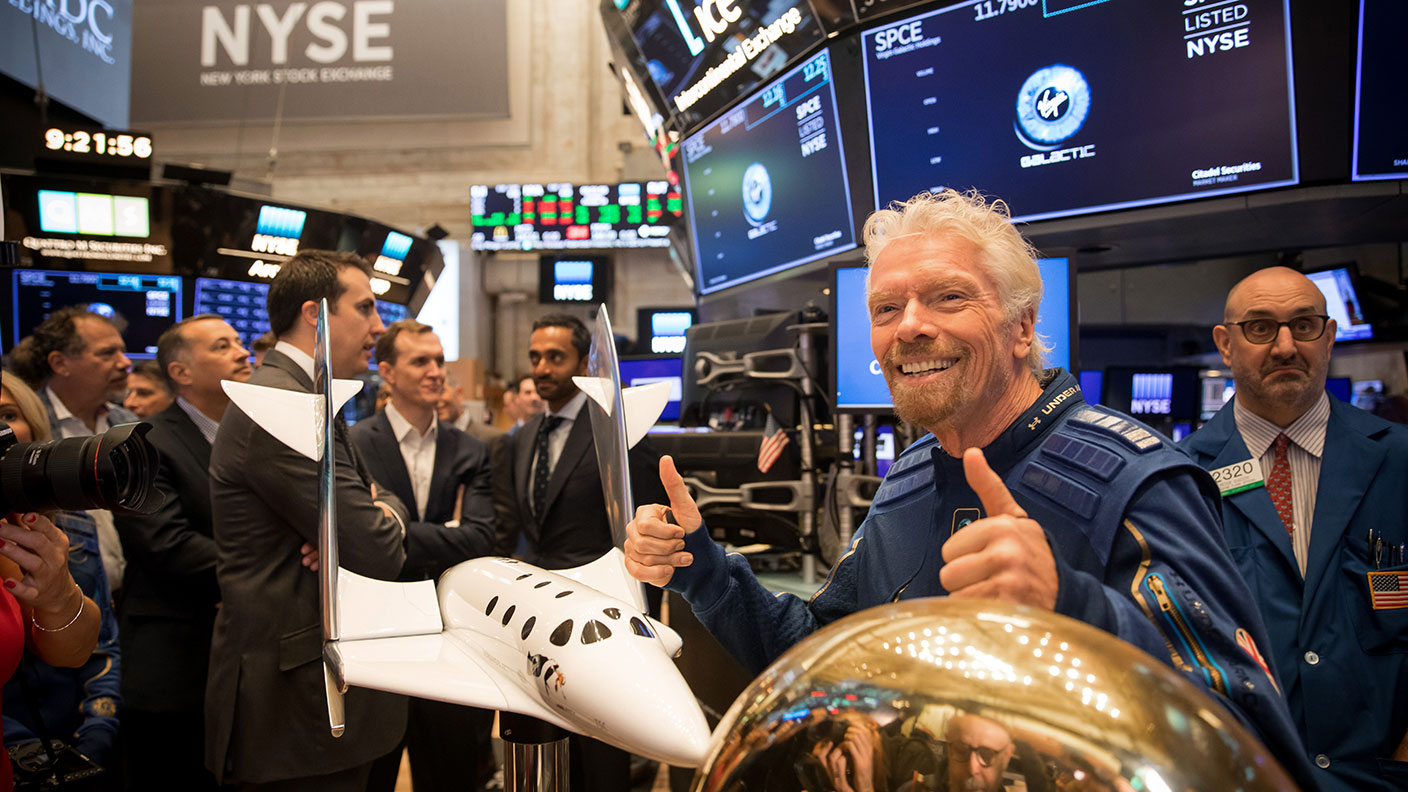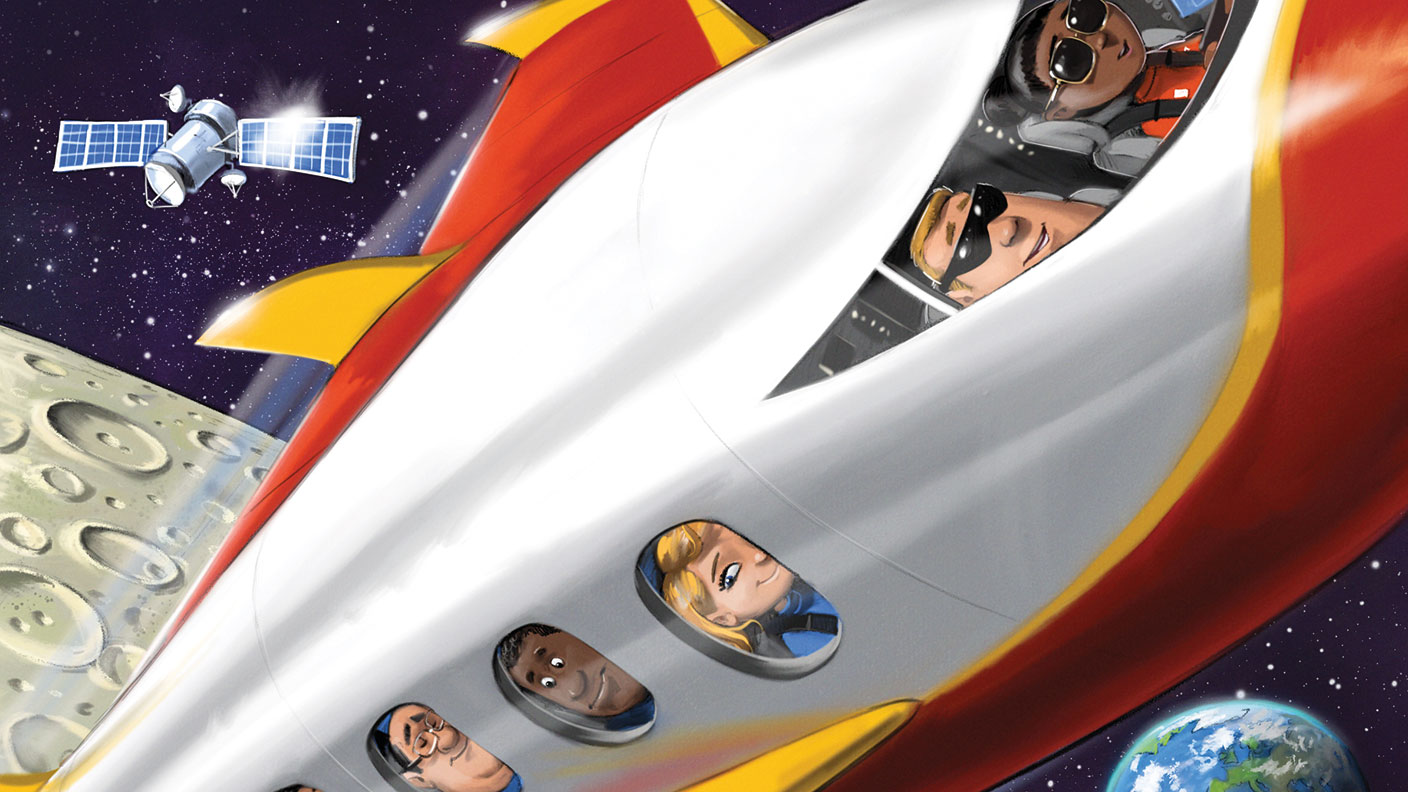The dawn of a new space age?
Nasa's space shuttle programme has drawn to a close. And with nothing to replace it, America is turning to the private sector to come up with alternatives. Emily Hohler reports on the latest advances in space technology, and looks at how to invest in the future of space exploration.

Get the latest financial news, insights and expert analysis from our award-winning MoneyWeek team, to help you understand what really matters when it comes to your finances.
You are now subscribed
Your newsletter sign-up was successful
Want to add more newsletters?

Twice daily
MoneyWeek
Get the latest financial news, insights and expert analysis from our award-winning MoneyWeek team, to help you understand what really matters when it comes to your finances.

Four times a week
Look After My Bills
Sign up to our free money-saving newsletter, filled with the latest news and expert advice to help you find the best tips and deals for managing your bills. Start saving today!
Why is the shuttle being scrapped?
Building, operating and testing America's space shuttles has cost around $290bn over the course of the 30-year programme, a huge proportion of the National Aeronautics and Space Administration (Nasa) budget. Critics question its value for money, particularly given the state of America's finances. Over the past two decades robots have flown around Jupiter and Saturn, rovers have explored Mars, and the Hubble telescope has captured extraordinary images, but the accomplishments of the shuttle have been harder to quantify. The excitement of the Apollo moon landing has never been repeated and the losses of Columbia and Challenger, along with 14 astronauts, dented the public's confidence in Nasa.
So what will Nasa do?
Nasa's funding is being cut by $1.6bn to $16.8bn. Over the next five years Nasa is planning to produce a heavy-lift rocket that could travel further into space. Cutting the shuttle should allow it to focus on unmanned, long-distance exploration trips, to an asteroid by 2025, and possibly to Mars. But a lack of manned craft means Nasa will have to hitch a ride aboard Russia's Soyuz and Progress vehicles at a cost of $63m a ticket to supply the International Space Station (ISS). To encourage private firms to fill the gap, Nasa is providing $6bn of funding. Current recipients include Blue Origin, Boeing, Sierra Corp and SpaceX all of which hope to sell astronaut taxi' services within five years. This marks a radical change in approach. Ever since the Soviet Union put a Sputnik satellite into space in 1957, space exploration has almost exclusively been the preserve of governments. American multi-millionaire Dennis Tito marked a turning point in 2001 when he paid a reported $20m to become the first space tourist and spent seven days in orbit as a guest of the Russian Federal Space Agency. Since then, Space Adventures has organised another seven flights to the ISS.
Is there money to be made?
Yes, although the costs of putting a spaceship into orbit are huge (see below). According to Nasa, GPS systems, the artificial heart, robotic limbs and cochlear implants are just a few of the 1,600-plus computing and medical innovations derived directly from the space programme. Companies subcontracted by Nasa are already making big money from logistical missions to the ISS and from servicing satellites. There are plenty of other potential gold mines too. Zero-gravity and the vacuum environment of space could make orbital labs and manufacturing attractive: Nasa has already used zero gravity to produce perfectly calibrated spheres for ballbearings, and new substances, particularly alloys that cannot be made on earth, could be created. The moon contains helium-3, a potentially rich source of energy through nuclear fusion. But the most immediate money-making opportunity lies in space tourism.
MoneyWeek
Subscribe to MoneyWeek today and get your first six magazine issues absolutely FREE

Sign up to Money Morning
Don't miss the latest investment and personal finances news, market analysis, plus money-saving tips with our free twice-daily newsletter
Don't miss the latest investment and personal finances news, market analysis, plus money-saving tips with our free twice-daily newsletter
At $20m a flight?
No. Tito travelled to the ISS and spent a week in orbit. The first space tourists will make a sub-orbital flight, allowing them to experience a few minutes of weightlessness, see the curvature of the earth and stare into the blackness of space before returning to Earth. The best-known company, Virgin Galactic, expects its first commercial flights to take place in 2013 following a successful test flight of its SpaceShipTwo last year: 430 people have already signed up, at $200,000 a head. Other companies, including XCOR and Blue Origin, are working on sub-orbital tourism vehicles. Billionaire Robert Bigelow has perfected a design for inflatable space hotels. He says the only thing holding his firm back is the transport system for his potential customers.
What about flights into orbit?
Costs are the biggest problem. These will remain high until someone develops a rocket-powered aircraft capable of multiple take-offs, which is likely to take many years. SpaceX, however, the first private firm successfully to return a spacecraft from orbit, managed to do so with costs that are seen as little short of miraculous within Nasa. The firm has already signed a fixed-price contract with Nasa to run 12 cargo flights to the ISS at an average price of $133m. Orbital Sciences Corporation, its chief rival (see below), is well on its way to developing its own rocket.
Any competition from foreign governments?
Space race leadership has been seen as a symbol of national potency ever since the moon landings, and there are fears that China could overtake the US. In 2003, China became the third country to send an astronaut into space on its own. Its space station is due to open around 2020, just as the ISS is to close. If America and its 13 partners don't come up with a replacement, China could have the only permanent human presence in space.
How to invest in space exploration
The cost of putting a spacecraft into orbit hardly makes for a convincing business plan. As Stephen Fleming of private equity firm EGL Ventures puts it, imagine trying to run a business with $37 stamps, $1,500 envelopes and petrol at $200/gallon. "No wonder Wall Street isn't interested." So it's no coincidence the major players in the sector are backed by wealthy private individuals. The man behind SpaceX, Paypal founder Elon Musk, is worth $500m; Blue Origin's backer, Jeff Bezos, is worth $18bn. However, there are a number of listed companies you could consider. Both Boeing and Lockheed Martin are making money from space through contract work for Nasa. A purer play is Orbital Sciences. It designs rockets and makes satellites for various industries and has a contract with Nasa to deliver cargo to and from the ISS.
Get the latest financial news, insights and expert analysis from our award-winning MoneyWeek team, to help you understand what really matters when it comes to your finances.

Emily has worked as a journalist for more than thirty years and was formerly Assistant Editor of MoneyWeek, which she helped launch in 2000. Prior to this, she was Deputy Features Editor of The Times and a Commissioning Editor for The Independent on Sunday and The Daily Telegraph. She has written for most of the national newspapers including The Times, the Daily and Sunday Telegraph, The Evening Standard and The Daily Mail, She interviewed celebrities weekly for The Sunday Telegraph and wrote a regular column for The Evening Standard. As Political Editor of MoneyWeek, Emily has covered subjects from Brexit to the Gaza war.
Aside from her writing, Emily trained as Nutritional Therapist following her son's diagnosis with Type 1 diabetes in 2011 and now works as a practitioner for Nature Doc, offering one-to-one consultations and running workshops in Oxfordshire.
-
 Inheritance tax investigations net HMRC an extra £246m from bereaved families
Inheritance tax investigations net HMRC an extra £246m from bereaved familiesHMRC embarked on almost 4,000 probes into unpaid inheritance tax in the year to last April, new figures show, in an increasingly tough crackdown on families it thinks have tried to evade their full bill
-
 Average UK house price reaches £300,000 for first time, Halifax says
Average UK house price reaches £300,000 for first time, Halifax saysWhile the average house price has topped £300k, regional disparities still remain, Halifax finds.
-
 Invest in space: the final frontier for investors
Invest in space: the final frontier for investorsCover Story Matthew Partridge takes a look at how to invest in space, and explores the top stocks to buy to build exposure to this rapidly expanding sector.
-
Three space stocks for adventurous investors
Tips Micah Walter-Range, index creator for the world’s first space ETF, selects three of his favourite space stocks to buy now.
-
 The space race: exciting, but not necessarily profitable
The space race: exciting, but not necessarily profitableOpinion The new space race will spawn a host of new companies wanting to cash in. But investors should tread very carefully, says Merryn Somerset Webb: most will fail.
-
 A new investment trust to profit from the space race
A new investment trust to profit from the space raceTips There is now an investment trust focusing on the space sector. It looks intriguing, says David Stevenson – but highly risky.
-
 Reach for the stars: how to profit from a new era of space exploration
Reach for the stars: how to profit from a new era of space explorationCover Story It has been almost 50 years since someone walked on the Moon and Mars seemed just a short hop away. But now the final frontier is back in fashion, spelling opportunity in a wide range of sectors, says Ben Judge.
-
Space exploration is booming – now’s the time to back it
Opinion Will space exploration be the next boom industry? Perhaps, says Matthew Lynn. And now is the time to buy in.
-
 Visionary investors should place their bets in the space race
Visionary investors should place their bets in the space raceCover Story It’s not just eccentric and ultra-rich tycoons heading into space. From asteroid mining to space hotels, promising profit opportunities now lie off-planet. Set your sights on the stars, says Stephen Connolly.
-
Is there life on Mars? Maybe not – but there’s money in space
Features With news of running water on Mars, people are excited about space exploration again. That's good for the global space industry – and for those who invest in it.